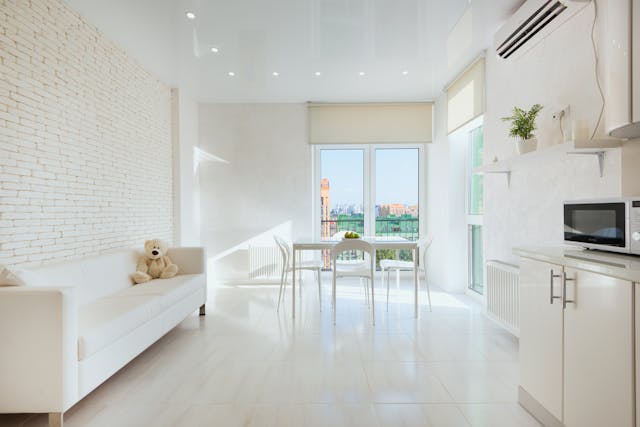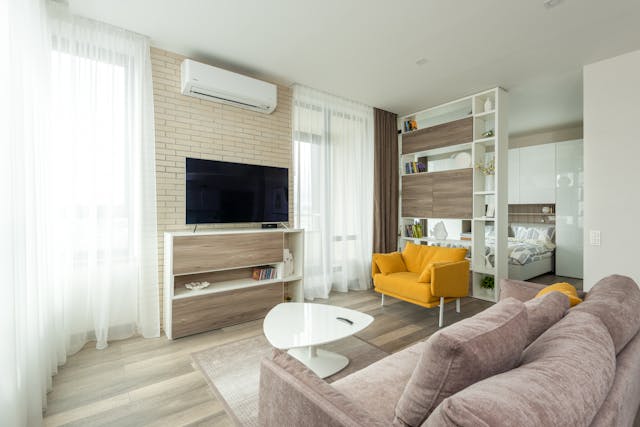In the Australian heat air conditioning is a must for both homes and businesses. With its vast size Australia has many climates from the scorching outback to humid coastlines. With Australia’s reputation for extreme weather long hot summers are a norm and something that requires effective cooling solutions. As temperatures keep rising due to climate change what was once a luxury is now a necessity in many parts of Australia.
Australia’s Climate Challenges
Australia has many climate challenges; each region has its own unique problems. Cities like Sydney and Brisbane get summer heatwaves over 40°C (104°F). Melbourne and other southern areas get temperature swings – scorching hot one minute and cold the next! Meanwhile the Outback has some places that get over 45°C (113°F) and is dry and barren with no shade or relief from the heat!The harsh nature of these climates has created a high demand among homeowners and commercial property owners alike to escape into cool indoor spaces provided by air conditioning installations.
Evolution: Air Conditioning Technology
Over time, there have been many improvements to existing HVAC technology to provide optimal indoor thermal comfort. Early AC units were big, noisy, energy guzzlers, and expensive to maintain. Most couldn’t afford them back then. Fortunately, we now have sleeker modern units that are more efficient, low noise, and cheaper to run. Companies like Alpha Air have embraced advancements in cutting-edge split-system designs, making setups simpler and installation hassle-free. This has led to more affordable options than traditional models. The growing popularity is due to increased adoption of reverse cycle units that can deliver year-round heating and the flexibility to switch between different settings based on seasonal requirements. Technology continues to enable many Aussies to have comfortable surrounds 24/7, even during the hottest summer months!

Health Benefits
Air conditioners are more than just a convenience – they serve a purpose when it comes to public health especially for vulnerable populations. Extreme ambient temperatures can cause multiple ailments like dehydration leading to exhaustion and even stroke. The elderly, young children and those with pre-existing medical conditions are more susceptible to lapses in safety. During heat waves, risk multiplies and that’s why reliable access to cooling is crucial. Understanding the importance of maintaining a stable internal environment despite external forces, these technological wonders regulate body temperature so we are safe at the hottest points of the year.
Environmental Concerns and Sustainability
Air conditioning has many benefits but also big environmental impacts. The amount of energy they use creates more carbon emissions and bigger carbon footprints. This high energy use is a challenge to Australia’s goal of reducing greenhouse gas emissions. But the focus on sustainable cooling is growing. Solar powered air conditioners which run solely on renewable energy are becoming popular. These systems reduce the environmental impact of cooling through using clean energy. Plus newer models are more efficient so use less electricity. Technology alone won’t be enough though. Australians need to adopt power saving habits. For example reducing unnecessary use of air conditioning by setting thermostats higher during summer can save a lot of electricity. Plus regular maintenance ensures optimal performance. Making these changes allows you to enjoy the comfort of a cool indoor air without the overall negative ecological impact.

Air Conditioning’s Impact on Economy
Australia relies heavily on its air conditioning industry as it’s a big business. Growing demand in both residential and commercial sectors is driving growth in this sector. As more Australians install AC’s, this creates jobs for installation, maintenance and repair purposes. Plus popularity means tangible benefits for local businesses in manufacturing and retail industries. Not to mention Air-Conditioning plays a vital role in multiple Australian industries. Hotels, tourism, healthcare depend on maintaining pleasant environments for customers, patients and employees. Besides, facilities in hot climate regions need temperature control to boost productivity and satisfaction.



